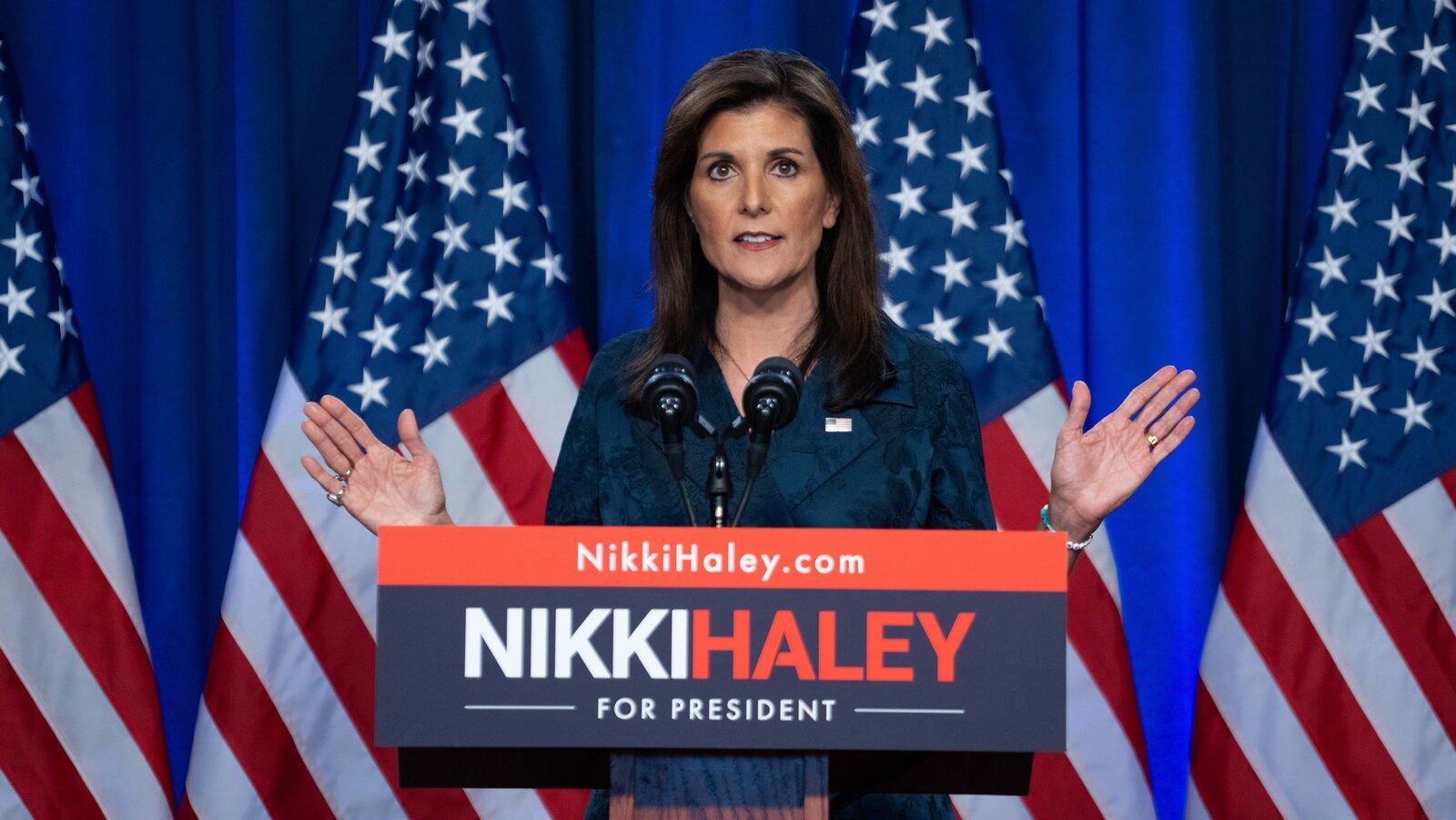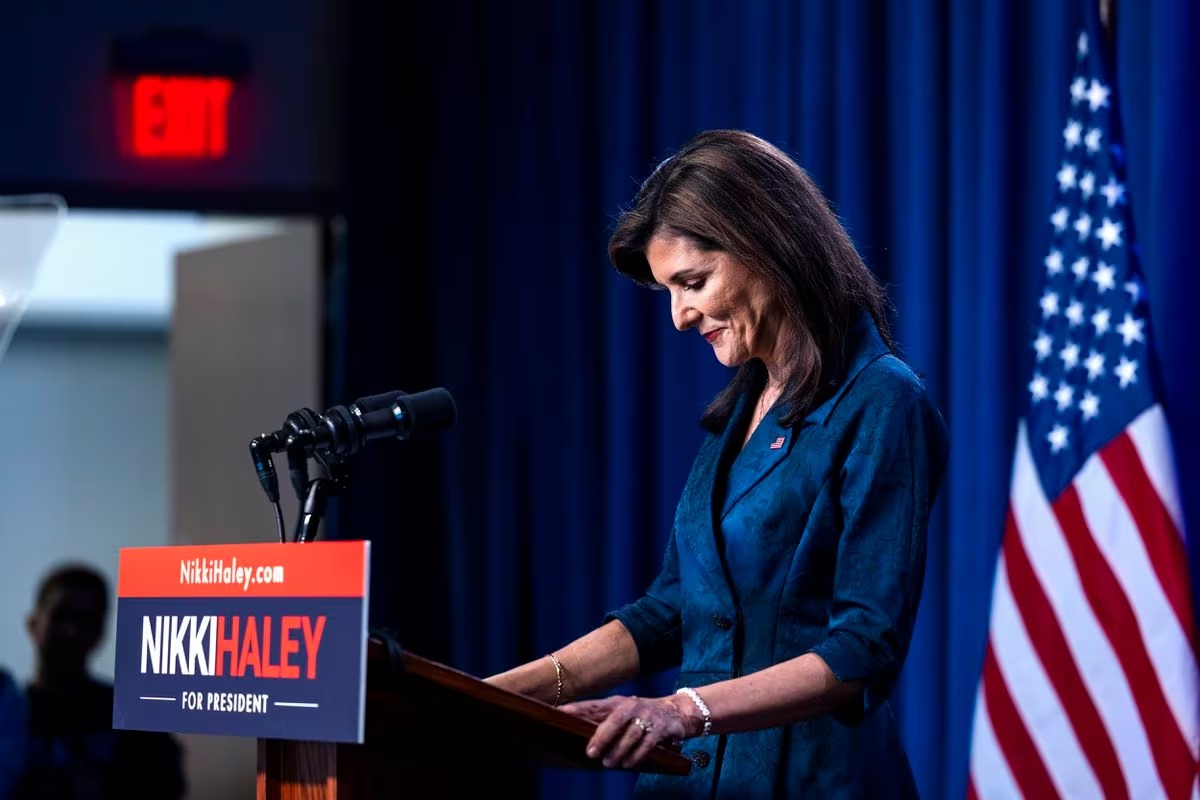Former President Donald Trump is heading into Super Tuesday with a substantial lead over former U.N. Ambassador Nikki Haley in the GOP presidential race, and he is likely to be on track to secure the necessary 1,215 delegates to secure the nomination.
Haley, on the other hand, has only won one contest in Washington, D.C., and her reliance on a coalition that includes affluent, college-educated suburbanites, some of whom may not even be Republicans but are using her candidacy to express their dissatisfaction with Trump, faces significant challenges on Super Tuesday.
Several contests on Super Tuesday are in states with demographics that favor Trump, particularly among white, working-class voters, which could hinder Haley’s chances.

Haley (Credits: The New York Times)
Additionally, party rules in many states limit non-Republicans’ participation and often require candidates to win outright majorities to collect delegates, further complicating Haley’s path to accumulating delegates.
While Haley did well in New Hampshire and secured a significant share of delegates, upcoming states in March have delegate rules similar to South Carolina, where even a strong showing only translated to a small percentage of delegates due to the requirement of winning states outright.
Unless Haley can expand her coalition or significantly boost turnout among her supporters, she is at risk of being overshadowed by Trump’s delegate count.
To illustrate the magnitude of Haley’s challenge, a detailed analysis of demographics, participation rules, and delegate allocation formulas for every GOP caucus and primary on Super Tuesday and in the subsequent contests in March was conducted.
Based on this analysis, it is clear that unless Haley can win outright majorities in multiple states, her campaign will struggle to compete with Trump’s delegate count due to the delegate math.























